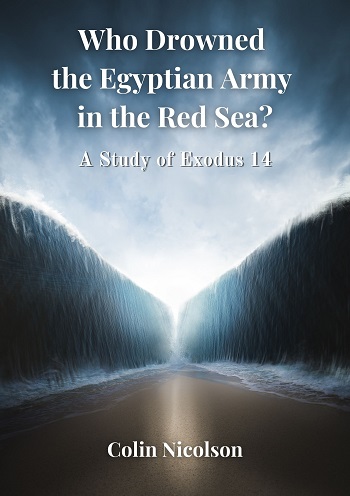Clovis I Converts to Catholicism to Win a Battle Just Like Constantine
Modern consensus of Clovis date of baptism is in 508 AD, not 496. See this article Clovis and 508 from http://Historicism.org/. More research needs to be done on this chronology and why it is important. It seems 496 was the date Gregory of Tours gave, who was not a primary source and was an unreliable chronicler of dates. I'd like to quote from the linked document on why Clovis matters:
Why Is Clovis Still Important? Clovis is still important today because decisions he made in the fifth and sixth centuries AD set processes in motion that continue to affect our daily lives. Lord Acton (b. 1834), a Roman Catholic scholar who, with others, initiated the monumental Cambridge Medieval History project, summarizes the extent of papal secular influence over Europe during the middle ages in an essay titled, “The Political System of the Popes.” Although the system is no longer in force, Europe was shaped by it. What it is now is based on what it was.
The popes at one time controlled vast swaths of real estate. Starting from Naples in central Italy, we proceed to the islands of Corsica and Sardinia, Provence (southern France), the city of Tarragona (Catalona), the provinces of Aragon and Navarre (northern Spain), Portugal, the House of Anjou (western France), the kingdom of the Hohenstaufen (southern Germany), the French Norman kingdom, England and Ireland,6 other British islands (Isle of Man, Hebrides, and Orkneys), Norway, Pomerania, Poland, Lithuania, Bohemia (western Czech Republic), Hungary, and back to Sicily.7 According to Acton, all these countries came under papal protection at one time or another. Bulgaria was included briefly in the years before the fourth crusade (1204) and, starting in 1246, even parts of Ruthenia (from the Dnieper to the mouth of the Danube). It was an altogether incredible performance.
"The Papal system of states gradually extended itself, till in the thirteenth century it reached its culminating point, when its great semicircle encompassed the States of the German Emperors. The Slavs and Magyars of the East had joined the Latin nations of the West, and the Sicilian Empire of the South was the connecting link between them." (Lord Acton, 'Essays on Church and State', 1968)
We have mapped these places onto space; let us now map them onto time. We do this by comparing two time slices a thousand years apart. In 1500, on the eve of the Reformation, every corner of Western Europe was Catholic. Many of its nations were ruled as papal fiefs, for which their kings paid rents.
But if we turn the clock back to AD 500, the scene is quite different. At this time Europe was either pagan, ruled by Arian Christians, or by Celtic Christians – none of them pro-papal. Muslims came a bit later. In broad strokes, the Basques were pagan until the IV/V (or XII/XIII) centuries; Bretons, Heruls, and Lombards until the VI century; Alemanni, Burgundians, and Saxons until the VII century, Frisians until the VII/VIII century; Thuringians until the VIII century. The Ostrogoths, Suebi, Vandals, Alans, and Visigoths were all Christian when they entered the Empire, but they were Arians and therefore heretics. Celtic Christianity originated in Ireland in the V century and spread to Scotland, much of Britain, and some of Gaul. The papacy didn’t oppose Celtic Christianity with the same fervor as Arianism, but considered it heretical. Sicily and some parts of southern Italy fell to Muslim invaders in the VIII century, along with Corsica, Sardinia, the Balearic Islands (Majorca, Minorca, Ibiza, Formentera), and Spain. The Muslim presence in Spain lasted almost 800 years, from 711 until 1492. So long as these places and people groups were non-Catholic, they could not be brought under papal control. One by one, all eventually converted.
There is a breathtaking difference between what we see in Western Europe in AD 500 and the corresponding situation in 1500. This change did not occur in a moment. It was a long and complex process, but this process had a starting point in time and space. The place where it started was France, because France was the first country of Europe to become Catholic. And the time when this happened was when Clovis became Catholic.10 That event was the vehicle by which both he and his kingdom came into relation with the papacy. Some place his baptism in 496; others in 508.
This article is well worth a read.
***
This is a great video of the rise of Clovis, "eldest son of the Catholic Church", and how he was key to the rise of the Papacy in the prophetic dates of 508 AD and 538 AD. It is fascinating how Clovis I converts when he needs victory in battle (Battle of Tolbiac, 496 AD), just like Constantine did at the Battle of the Milvian Bridge (312 AD). I also learnd that "Louis" comes from "Clovis", and the reason French kings take the name Louis is following after Clovis.
Read more in Uriah Smith's Commentary on Daniel and Revelation, on Daniel 12. (Download PDFs on this here)
Baptism of Clovis. "As to the writings of Anastasius, . . . there is one from him to Clovis, king of the Franks, congratulating that prince on his conversion to the Christian religion. For Clovis, the first Christian king of the Franks, was baptized on Christmas Day 496, the very day, according to some, on which the pope was ordained." (Archibald Bower, The History of the Popes, Vol. I, p. 295)
Thomas Hodgkin says: "The result of this ceremony [baptism] was to change the political relations of every state in Gaul. Though the Franks were among the roughest and most uncivilized of the tribes that had poured westwards across the Rhine, as Catholics they were now sure of a welcome from the Catholic clergy of every city, and where the clergy led, the 'Roman' provincials, or in other words the Latinspeaking laity, generally followed. Immediately after his baptism Clovis received a letter of enthusiastic welcome into the true fold, written by Avitus, Bishop of Vienne, the most eminent ecclesiastic of the Burgundian kingdom." (Thomas Hodgkin, Theodoric the Goth, pp. 190, 191)
---
Clovis the First Catholic Prince. "It is observable, that Clovis was, at this time [496], the only Catholic prince in the known world, as the word Catholic was then understood. Anastasius, Emperor of the East, was a professed Eutychian. Theodoric, King of the Ostrogoths in Italy; Alaric, King of the Visigoths, master of all Spain, and of the third part of Gaul; the kings of the Burgundians, Suevians, and Vandals, in Gaul, Spain, and Africa; were all zealous followers of Arius. As for the other kings of the Franks settled in Gaul, they were still pagans. Clovis was not only the sole Catholic prince at this time in the world; but the first king that ever embraced the Catholic religion; which has procured to the French king the title of the 'most Christian,' and that of 'the eldest son of the Church.' But were we to compare the conduct and actions of Clovis, the Catholic, with those of the Arian King Theodoric, such a comparison would no ways redound to the honor of the Catholic faith." (Archibald Bower, The History of the Popes, Vol. I, p. 296, footnote. See also Henry Hart Milman, History of Latin Christianity , Vol. I, pp. 381-388)
---
Popes Endangered by Arian Princes. Ephraim Emerton, former professor of history at Harvard University, says: "By the time of the Franks had fought the battle of Strassburg the bishops of the city of Rome had come to be looked up to as the leaders of the Church in what had been the Western Empire. They had come to be called popes, and were trying hard to govern the Church of the West just as a king might govern his people. We have seen how much respect a venerable pope like Leo could command even from such rude destroyers as Attila and Gaiseric. Now the popes had always been devoted Catholics, opposed to Arianism wherever it appeared. At the moment of the Frankish conversion they were in constant danger from the Arian Ostrogoths who had just got a firm hold upon Italy. Theodoric had not distributed the religion of Rome, but a new king might arise who should try to force Arianism upon the whole of Italy. The pope was therefore overjoyed to hear that the newly converted Franks had taken his form of the Christian belief. He was ready to bless every undertaking of theirs as the work of God, if only it might be against the worse than heathen Arians. Thus began as early as the year 500 an understanding between the Roman Papacy and the Frankish kingdom which was to ripen into an intimate allegiance and to do very much towards shaping all the future history of Europe." (Ephraim Emerton, Introduction to the Study of the Middle Ages, pp. 65, 66)
---
Clovis's Conversion a Check on the Arians. "The event which intensified the fears of all the Arian kings, and which left to each one little more than the hope that he might be the last to be devoured, was the conversion to Catholicism of Clovis, the heathen king of the Franks." (Thomas Hodgkin, Theodoric the Goth, p. 186)
---
Barbarian League Against Clovis. "The kings of the barbarians were . . . invited to join in a 'League of Peace,' in order to check the lawless aggressions of Clovis which threatened danger to all." (Ibid., pp. 198, 199)
"To form such a confederacy and to league together all the older Arian monarchies against this one aspiring Catholic state which threatened to absorb them all, was now the main purpose of Theodoric." (Ibid., pp. 194)
---
Clovis Launches a Religious War. "The diplomatic action of Theodoric was powerless to aver the war; possible even it may have stimulated Clovis to strike rapidly before a hostile coalition could be formed against him. At an assembly of his nation (perhaps the 'Camp of March') in the early part of 507, he impetuously declared: 'I take it grievously amiss that these Arians should hold so large a part of Gaul. Let us go and overcome them with God's help, and bring the land into subjection to us.' The saying pleased the whole multitude, and the collected army marched southward to the Loire." (Ibid., pp. 199)
---
Clovis Defeats the Visigoths. "The next campaign of the Frankish king was one of far greater importance and success. He was set on trying his fortune against the young king of the Visigoths, whose personal weakness and unpopularity with his Roman subjects tempted him to an invasion of Aquitaine. It would seem that Chlodovech [Clovis] carefully chose as a casus belli the Arian persecutions of the Alaric, who, like his father Euric, was a bad master to his Catholic subjects. . . . In 507 Chlodovech declared war on the Visigoths ." (Charles Oman, The Dark Ages, p. 62)
"Why the explosion was delayed until the year 507 is unknown. That the king of the Franks was the aggressor is certain. He easily found a pretext for beginning the war as a champion and protector of Catholic Christianity against the absolutely just measures which Alaric took against his treacherous orthodox clergy. . . . In the spring of 507 he [Clovis] suddenly crossed the Loire and marched toward Poitiers. . . . Ten miles from Poitiers, the Visigoths had taken up their position. Alaric put off beginning battle because he was waiting for the Ostrogoth troops, but as they were hindered by the appearance of a Byzantine fleet in Italian waters he determined to fight instead of beating a retreat, as it would have been wise to do. After a short engagement the Goths turned and fled. In the pursuit the king of the Goths was killed, it was said by Clovis's own hand (507). With this overthrow the rule of the Visigoths in Gaul was ended forever." (The Cambridge Medieval History, Vol. I, p. 286)
"It is evident, from the language of Gregory of Tours, that this conflict, between the Franks and Visigoths was regarded by the Orthodox party of his own and preceding ages as a religious war, on which, humanly speaking, the prevalence of the Catholic or the Arian creed in Western Europe depended." (Walter C. Perry, The Franks, From Their First Appearance in History to the Death of King Pepin, p. 85)
---
"AD 508. A short time after these events, Clovis receive the titles and dignity of Roman patricius and consul from the Greek emperor Anastasius; who appears to have been prompted to this act more by motives of jealousy and hatred towards Theodoric the Ostrogoth, than by any love he bore for the restless and encroaching Frank. The meaning of these obsolete titles, as applied to those who stood in no direct relation either division of the Roman Empire, has never been sufficiently explained. . . . The sun of Rome was set, but the twilight of her greatness still rested on the world. The German kings and warriors received with pleasure, and wore with pride, a title which brought them into connection with that imperial city, of whose universal dominion, of whose skill in armies and arts, the traces lay everywhere around them." (Ibid., pp. 88, 89)
"In 508 Clovis received at Tours the insignia of the consulship from the eastern emperor, Anastasius, but the title was purely honorific. The last years of his life Clovis spent in Paris, which he made the capital of his kingdom." (Encyclopaedia Britannica, 11th ed., art. "Clovis," Vol. VI, p. 563)
---
End of Arian Resistance. This disposed of the Visigothic kingdom, but there yet remained the league of Arian powers under Theodoric. Alaric had counted on the assistance of Theodoric, but the latter failed him. The next year, AD 508, however, Theodoric came against Clovis and gained a victory, after which he unaccountable made peace with him, and the resistance of the Arian powers was at an end. (See Thomas Hodgkin, Theodoric the Goth, pp. 202, 203; Nugent Robinson, A History of the World, Vol. I, pp. 75-79, 81, 82)
---
Significance of Clovis's Victories. The eminence which Clovis had attained in the year 508, and the significance of his victories to the future of Europe and the church were so great that historians cannot forbear commenting on them.
"Nor was his a temporary conquest. The kingdom of the West Goths and the Burgundians had become the kingdom of the Franks. The invaders had at length arrived, who were to remain. It was decided that the Franks, and not the Goths, were to direct the future destinies of Gaul and Germany, and that the Catholic faith, and not Arianism, was to be the religion of these great realms." (See Thomas Hodgkin, Theodoric the Goth, pp. 202, 203; Nugent Robinson, A History of the World, Vol. I, pp. 75-79, 81, 82)
"Clovis was the first to unite all the elements from which the new social order was to be formed, namely, the barbarians, whom he established in power; the Roman civilization, to which he rendered homage by receiving the insignia of patrician and of consul from the Emperor Anastasius; and finally, the Catholic Church, with which he formed that fruitful alliance which was continued by his successors." (Victor Duruy, The History of the Middle Ages, p. 32)
---
Paved the Way for Alliance of Church and State. "In him [Clovis] met two religions, and two ages of the world. At his birth the Roman world was still a power; his death marks the dawn of the Middle Ages. He stepped into the vacant place of the Eastern emperor, and paved the way for what Charlemagne perfected the fusion of Roman and German civilization, the alliance of church and state." (Julius von Pflugk-Harttung, A History of all Nations, Vol. VII, p. 27)
---
Clovis Saved the Church From Paganism and Arianism. "He [Clovis] had on all occasions shown himself the heartless ruffian, the greedy conqueror, the bloodthirsty tyrant; but by his conversion he had led the way to triumph of Catholicism; he had saved the Roman Church from the Scylla and Charybdis of heresy and paganism, planted it on a rock in the very center of Europe, and fixed its doctrines and traditions in the hearts of the conquerors of the west." (Walter C. Perry, The Franks, From Their First Appearance in History to the Death of King Pepin, p. 97)
---
Foundations of the Medieval Church. "the results of their [the Franks'] occupation of Gaul were so important, the empire which they founded, their alliance with the church, their legal notions and political institutions were all of such decisive influence upon the future that their history deserves separate treatment. . . . It is to them [the Franks] that the political inheritance of the Roman Empire passed; to them came the honor of taking up and carrying on, roughly, to be sure, and far less extensively and effectively, but nevertheless of actually carrying on the political work which Rome had been doing. They alone represent that unity which Rome had established, and so far as that unity was maintained at all as a definite fact, it is the Franks who maintained it. . . It is only at the end of the fifth century that their career really begins, and then, as so often in similar cases, it is the genius of one man, a great leader, which creates the nation. . . . Clovis . . . appears as one of the great creative spirits who give a new direction to the currents of history. . . . A third step of great importance in this process of union was also to be taken by Clovis. One institution, produced in the ancient world before the Germans entered it, had continued with vigorous life and wide influence, indeed, with slowly increasing power, through all the changes of this chaotic period. It was to be in the future a still greater power and to exert an influence even wider and more permanent than that of the Franks. . . . This was the Roman Church. It was to be the great ecclesiastical power of the future. It was therefore a most essential question whether the Franks, who were to grow on their side into the great political power of the future, should do so in alliance with this other power or in opposition to it...
"This question Clovis settled, not long after the beginning of his career, by his conversion to Catholic Christianity. . . . In these three ways, therefore, the work of Clovis was of creative influence upon the future. He brought together the Roman and German upon equal terms, each preserving the sources of his strength, to form a new civilization. He founded a political power which was to unite nearly all the continent in itself, and to bring the period of the invasions to an end. He established a close alliance between the two great controlling forces of the future, the two empires which continued the unity which Rome had created, the political empire and the ecclesiastical." (George Burton Adams, Civilization During the Middle Ages, pp. 137-144)
---
Thus in AD 508 terminated united resistance to the development of the papacy. The question of supremacy between Frank and Goth, between the Catholic and the Arian religions, had then been settled in favor of the Catholics.
Below is a good video on the rise of Constantine I by the same YouTube Channel. Notice that the need for divine intervention happens after Constantine has a shock defeat at 17:30





